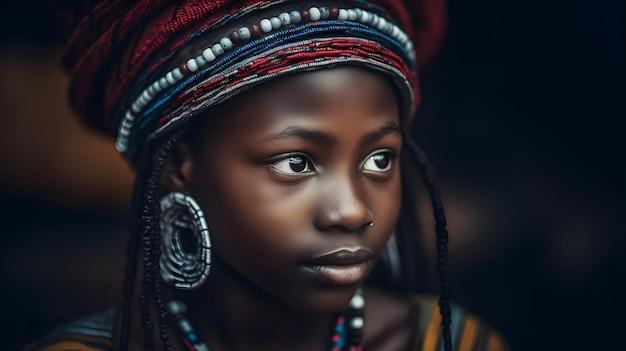Africa is a continent full of rich culture, diverse languages, and captivating stories that have been passed down through generations. The literature that emerges from this vast and vibrant continent reflects the beauty and complexity of African societies, their histories, struggles, and aspirations. In this blog post, we will explore the characteristics of African literature, the different genres that have evolved over time, and the themes that resonate within its pages.
From ancient civilizations to modern societies, Africa’s literary heritage is as vast as its geographical landscape. Join us on this journey as we dive into the enchanting world of African literature, discover the various cultures that contribute to it, explore its evolution in the modern era, and uncover the powerful themes that shape its narratives. So, grab a cup of tea or coffee, and let’s embark on an exploration of African literature together.
Let’s delve into the heart and soul of African literature and appreciate the voices that have captured imaginations for centuries, with their unique perspectives, compelling narratives, and timeless messages.

Characteristics of African Literature
As we dive into the rich world of African literature, we uncover distinctive characteristics that set it apart. From captivating storytelling to unique cultural perspectives, African literature offers a vibrant tapestry of narratives. Let’s explore the key features that make African literature so special.
1. Oral Tradition: The Spoken Word Weaves Tales Together
In African culture, storytelling is deeply rooted in the oral tradition. Before the advent of written literature, stories were passed down from generation to generation through spoken word. This tradition heavily influenced African literature, as writers continued to embrace the power of storytelling. So, get ready to be swept away by captivating narratives that have been cherished for centuries.
2. Cultural Authenticity: Celebrating Identities and Narratives
African literature beautifully showcases a diverse range of cultures, traditions, and identities. From the bustling markets of Lagos to the vast savannahs of Kenya, you’ll encounter stories that capture the essence of African life. This emphasis on cultural authenticity allows readers to explore new perspectives and gain a deeper understanding of the African experience.
3. Social Commentary: Sparks of Wit and Wisdom
African literature is no stranger to addressing social issues. Writers use their craft to shed light on various aspects of society, often with a touch of wit and wisdom. Whether it’s exploring gender equality, political unrest, or economic disparities, African literature offers valuable social commentary. Prepare to be both entertained and enlightened as you navigate the complexities of African society through its literature.
4. Magical Realism: Blending Reality and Fantasy
Another fascinating characteristic of African literature is its incorporation of magical realism. In these stories, the boundaries between reality and fantasy blur, allowing for the exploration of supernatural elements within everyday life. Brace yourself for enchanting tales where spirits roam freely and mythological creatures exist side by side with ordinary people.
5. Oral Performance: Words Come Alive
African literature is not just meant to be read; it is meant to be heard. Many African writers infuse their works with a rhythmic quality, reminiscent of the oral performances that inspired them. Soak in the melody of the prose as you read aloud, allowing the words to dance on your tongue and transport you into the heart of the narrative.
6. Multi-Lingual Influence: A Symphony of Languages
With over 2,000 languages spoken across Africa, it’s no surprise that African literature reflects this linguistic diversity. From English and French to Swahili and Yoruba, African writers embrace multiple languages to convey their stories. This linguistic symphony adds richness and depth to the literature, making each work a unique celebration of African linguistic heritage.
7. Historical Context: An Exploration of African Heritage
African literature often delves into the continent’s rich historical past, shedding light on significant events and the impact they have had on African society. Through these narratives, readers gain a deeper understanding of the struggles, triumphs, and resilience of African people. It’s a literary journey that intertwines past and present, leaving a lasting impression on readers.
So, as you embark on your African literary adventure, be prepared to be whisked away by the power of storytelling, immersed in diverse cultures, and captivated by tales that beautifully blend reality and fantasy. African literature is a treasure trove waiting to be discovered, and these characteristics only scratch the surface of its allure. Get ready to be spellbound by this extraordinary literary tradition!

FAQ: Characteristics of African Literature
What cultures are present in Africa
Africa is a diverse continent, home to a multitude of cultures and ethnic groups. From the Berbers in North Africa to the Zulu in Southern Africa, the continent is a tapestry of traditions, languages, and customs. Each culture brings its unique perspective and storytelling traditions to the rich tapestry of African literature.
What is the contemporary African literary scene like
Modern African literature is vibrant and dynamic, reflecting the changing times and the experiences of contemporary African writers. It encapsulates a wide range of themes and styles, addressing social, political, and cultural issues that are relevant to the African continent and beyond. From the gritty urban landscapes of Nigerian cities to the rural communities of South Africa, African literature offers a glimpse into the complexities of life on the continent.
What are the defining characteristics of African literature
African literature is characterized by its rich oral tradition, which has been passed down through generations. It often incorporates elements of folklore, myth, and proverbs, creating a vivid and culturally immersive reading experience. African literature also frequently explores themes of identity, colonization, post-colonialism, and the African diaspora, offering insights into the historical and contemporary experiences of Africans.
What genres can be found in African literature
African literature encompasses a wide range of genres, showcasing the diversity of storytelling on the continent. From historical novels that delve into the complexities of African history to captivating poetry that captures the essence of African culture, there is something for every literary taste. Other genres include coming-of-age stories, magical realism, Afrofuturism, and crime fiction, all contributing to the rich tapestry of African literary traditions.
What was Africa originally called
Africa was originally referred to as “Alkebulan” by the indigenous people of the continent. Alkebulan means “mother of mankind” or “garden of Eden,” emphasizing Africa’s historical significance as the birthplace of humanity.
What are the common themes explored in African literature
African literature explores a myriad of themes that resonate with readers around the world. Themes such as the effects of colonialism, the struggle for independence, social justice, gender inequality, the search for identity, and the clash between tradition and modernity are frequently addressed in African literary works. These themes not only provide thought-provoking narratives but also challenge prevailing stereotypes and offer fresh perspectives on global issues.
Explore the Richness of African Literature
African literature is a treasure trove of diverse stories, voices, and perspectives. Its distinct characteristics, captivating genres, and exploration of universal themes make it an invaluable contribution to the world of literature. So, grab a book by an African author, immerse yourself in the narratives, and embark on a literary journey that will open your eyes to the richness of Africa’s literary tradition.
Remember, the tales of Africa are not just stories; they are a gateway to understanding the complexities, resilience, and beauty of a continent that has shaped our shared human history.
